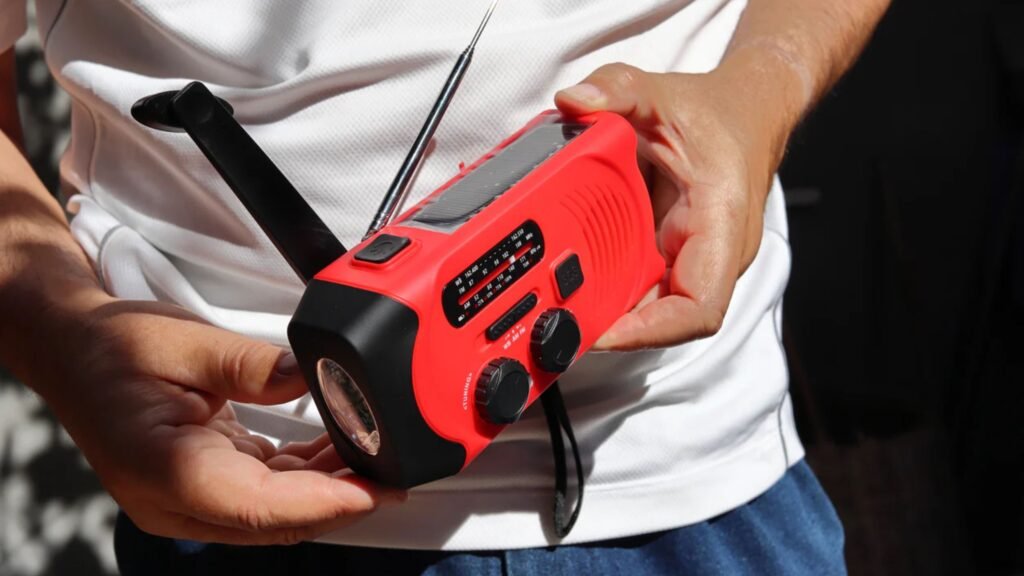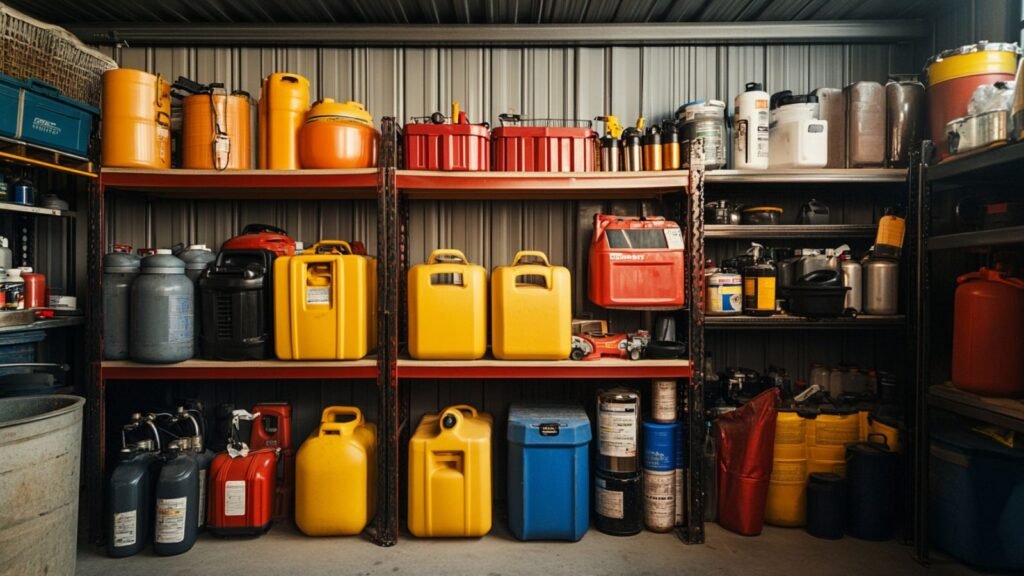An electromagnetic pulse (EMP) attack is a real threat that could plunge our modern world into chaos. And it’s a threat that many preppers, myself included, take seriously.
While it might sound like science fiction, the consequences of such an event would be far-reaching and severe. A massive EMP attack on the United States would produce almost unimaginable devastation.
Understanding what to expect can help you prepare and increase your chances of survival. By knowing the most likely consequences of such an attack, you have the chance to prepare for it as best you can to give you the best chance of survival is this does become reality.
1. Immediate Power Outage

The most immediate and noticeable effect of an EMP attack would be a widespread blackout. Electricity grids would fail instantly, plunging entire regions into darkness. This sudden loss of power would affect homes, businesses, and critical infrastructure alike. Expect to be without electricity for an extended period, possibly months or even years.
2. Communication Breakdown

In the wake of an EMP, communications would collapse. Cell phones, landlines, internet, and most radio systems would become useless. This communication blackout would make it extremely difficult to get information about the situation or to contact loved ones. You’d need to rely on alternative methods of communication, such as hand-crank radios or pre-arranged meeting points.
3. Transportation Gridlock

Transportation services would be severely disrupted. Most modern vehicles rely on electronic systems that would be fried by an EMP. This would lead to massive traffic jams as cars suddenly stop working. Public transportation systems would also fail, leaving many people stranded far from home.
4. Water Supply Issues

Municipal water systems rely on electricity to operate pumps and purification systems. Without power, clean water would quickly become scarce. You might have water pressure for a day or two due to gravity-fed systems, but after that, you’d need to rely on stored water or find alternative sources like rivers or rainwater collection.
5. Food Shortages

The modern food supply chain is heavily dependent on electricity and transportation. With both disrupted, grocery stores would quickly run out of food. You’ll be preoccupied with finding food to eat and clean drinking water. Long-term food storage and the ability to grow or forage for food would become crucial skills.
6. Banking System Failure

ATMs and electronic payment systems would stop working immediately. It’s wise to stockpile essential items such as extra medication and food, as well as luxury goods. Having a supply of cash on hand would be beneficial in the short term, but its value might quickly diminish as people turn to bartering for goods and services.
7. Medical Care Crisis

Hospitals and medical facilities would be severely impacted. Many modern medical devices rely on electronics and would be rendered useless. Medications requiring refrigeration would spoil. Chronic conditions requiring regular treatment, like dialysis, would become life-threatening.
8. Sanitation Problems

Without running water and functioning sewage systems, sanitation would quickly become a major issue. Waste management systems would fail, potentially leading to the spread of disease. Knowledge of proper waste disposal and basic hygiene practices would be crucial.
9. Loss of Climate Control

Heating and cooling systems would stop working. This could be life-threatening in extreme weather conditions. You’d need alternative methods to stay warm in winter and cool in summer, such as proper clothing, insulation, and non-electric heating and cooling techniques.
10. Information Scarcity

Data loss would be a significant issue. Much of our information is stored electronically and could be wiped out. Access to news and current events would be limited. Having physical copies of important documents and information would be invaluable.
11. Breakdown of Law and Order

As resources become scarce and people become desperate, there’s a high likelihood of increased crime and social unrest. Police and emergency services would be overwhelmed and largely ineffective. Personal and community security would become a top priority.
12. Economic Collapse

The modern economy relies heavily on electronic systems. An EMP would likely trigger a complete economic collapse. Jobs would disappear, savings could become worthless, and a barter economy might emerge.
13. Agricultural Challenges

Modern farming relies heavily on electronic equipment. An EMP would disrupt large-scale food production. Small-scale, manual farming would become crucial. Knowledge of traditional farming methods and seed saving would be extremely valuable.
14. Fuel Shortages

Gas pumps require electricity to operate. Even if you have a working vehicle, finding fuel would be challenging. Storing fuel safely and having alternative transportation methods like bicycles would be important.
15. Disruption of Government Services

Government agencies at all levels would struggle to function. Emergency services, social services, and other government support systems would be severely limited or non-existent. Communities would need to become self-reliant.
16. Psychological Impact

The sudden loss of modern conveniences and the uncertainty of the situation would have a significant psychological impact. Stress, anxiety, and depression would be common. Mental resilience and coping strategies would be crucial for survival.
17. Education Interruption

Schools and universities would close. Data loss would erase much of our digital knowledge base. Education would revert to more traditional methods, and practical skills would become more valuable than academic knowledge.
18. Increased Reliance on Manual Labor

Without machines and electronics, many tasks would require manual labor. Physical fitness and practical skills would become much more important. Be prepared for a more physically demanding lifestyle.
19. Changes in Social Structures

Communities would likely band together for survival. Extended families and neighborhoods might form tight-knit groups for mutual support. Social skills and the ability to work well with others would become crucial.
20. Scarcity of Manufactured Goods

With factories and supply chains disrupted, manufactured goods would quickly become scarce. The ability to repair, repurpose, and create items from available materials would be invaluable.
21. Return to Simpler Technologies

Anything that is stored in a metal box or a Faraday caged room might still work. Older, simpler technologies that don’t rely on complex electronics would become more prevalent. Mechanical watches, hand tools, and older appliances might still function and become highly valued.
22. Changes in Diet and Nutrition

With limited food options, diets would change dramatically. Fresh produce and meats would become rare. Knowledge of food preservation techniques, wild edibles, and nutrition would be crucial for maintaining health.
23. Altered Sleep Patterns

Without artificial lighting, people would likely revert to more natural sleep patterns, going to bed earlier and waking with the sun. This could lead to significant lifestyle changes and health impacts.
24. Increased Importance of Community

In the face of such widespread disruption, strong community bonds would be essential for survival. Skills like conflict resolution, leadership, and teamwork would become incredibly important. Communities that work together would have a much better chance of thriving in the post-EMP world.

